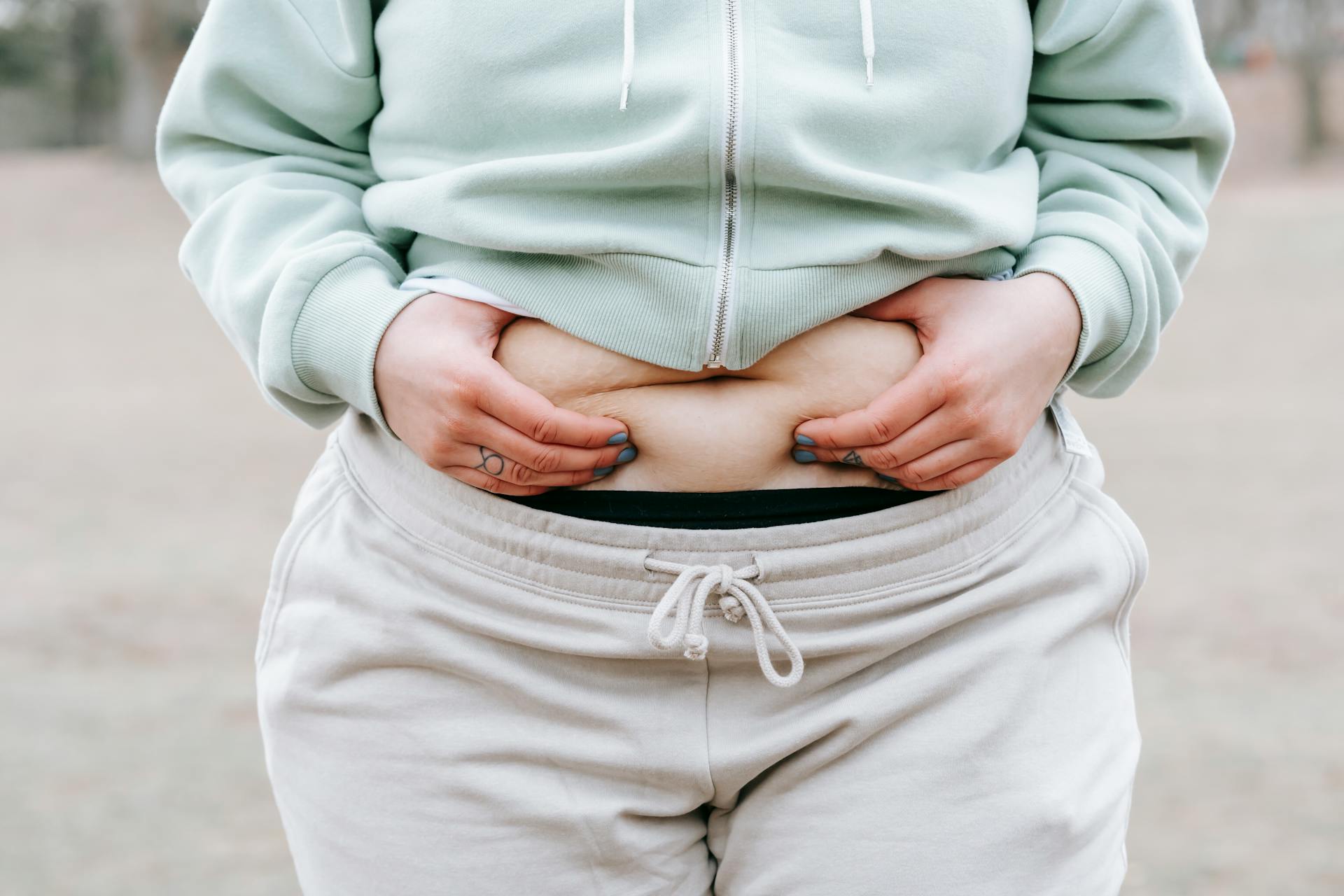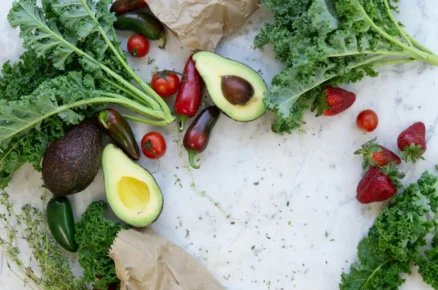Your gut plays a vital role in your overall wellbeing, from digestion and immune function to mental clarity and skin health. However, many people in the UK suffer from gut imbalances without realising it. If you’re constantly feeling fatigued, bloated, or struggling with skin or mood issues, your gut might be trying to send you a signal.
Understanding the signs of an unhealthy gut in women and men is crucial, as is knowing how to rebalance it with the best natural remedies for gut health. This guide will walk you through 10 common signs of gut trouble and offer simple, research-backed ways to restore balance using food, lifestyle shifts, and supplements.
1. Persistent Bloating and Gas
Experiencing bloating or excessive wind regularly, even after light meals, is often a red flag for gut dysbiosis (an imbalance of gut bacteria). It may suggest your digestive system is struggling to break down food properly, potentially due to low stomach acid or insufficient beneficial bacteria.
Natural Remedies That Help
- Eat slowly to aid digestion and reduce swallowed air
- Include fermented foods like sauerkraut, kimchi, and kefir
- Try herbal teas such as peppermint or fennel, known for reducing bloating
2. Irregular Bowel Movements
From constipation to diarrhoea, irregular bowel habits are often the body’s way of signalling that the gut microbiome is out of balance. For women, hormonal shifts can worsen these symptoms during certain phases of the menstrual cycle.
What You Can Do
- Add more fibre-rich foods, such as oats, flaxseeds, and lentils
- Stay hydrated and consider a gentle magnesium supplement
- Look into the best probiotics for gut health UK to support regularity. Strains like Lactobacillus rhamnosus and Bifidobacterium lactis have been shown to help
3. Skin Issues Like Acne, Rosacea or Eczema
The gut-skin axis is well documented, and many skin conditions have been linked to gut inflammation or permeability (also known as leaky gut). If topical treatments aren’t helping your skin issues, it may be time to heal from the inside out.
Gut-Healing Tips for Skin
- Remove inflammatory foods such as processed sugar, alcohol, and gluten
- Introduce collagen-rich broths and zinc-rich foods to support the gut lining
- Incorporate the best foods for gut health UK such as live-cultured yoghurt and garlic, known for their antibacterial and soothing properties
4. Low Energy and Constant Fatigue
A sluggish gut can impair your ability to absorb nutrients, especially iron and B vitamins, which are crucial for energy production. An inflamed gut may also increase cortisol (your stress hormone), leading to burnout.
Energy-Boosting Gut Strategies
- Eat a rainbow of vegetables to feed beneficial bacteria
- Take a high-quality multivitamin with B12 and iron if needed
- Try adaptogenic herbs like ashwagandha to support stress resilience and gut repair
5. Frequent Sugar Cravings
If you’re constantly craving sweets, your gut may be harbouring more “bad” bacteria or yeast like Candida, which thrive on sugar. These imbalances can alter your appetite and sabotage your healthy eating goals.
Break the Craving Cycle
- Add more protein and healthy fats to your meals to stabilise blood sugar
- Use natural sweeteners like stevia or cinnamon to reduce reliance on processed sugar
- A short-term anti-candida diet combined with antifungal herbs such as oregano oil may help rebalance the gut flora
6. Brain Fog and Poor Concentration
There’s growing evidence supporting the gut-brain connection. An unhealthy gut can produce neurotoxins and inflammatory compounds that affect mental clarity and mood. You may find yourself forgetting things, losing focus, or feeling spaced out.
Sharpen Your Mind by Healing the Gut
- Include omega-3-rich foods such as mackerel and walnuts
- Avoid artificial sweeteners like aspartame, which may alter gut bacteria
- Supplement with a probiotic containing Lactobacillus plantarum, known to support cognitive function
7. Food Intolerances or Sensitivities
New sensitivities to dairy, gluten, or even healthy foods may arise when the gut lining is damaged. When this barrier becomes “leaky”, undigested particles can enter the bloodstream and trigger immune responses.
How to Soothe the Gut Lining
- Follow an elimination diet guided by a nutritional therapist
- Consume bone broth, aloe vera juice, and L-glutamine, all known to help repair the intestinal wall
- Reintroduce foods slowly while supporting digestion with digestive enzymes
8. Unexplained Weight Fluctuations
An unhealthy gut can interfere with blood sugar regulation and fat storage. Weight gain, especially around the middle, or sudden weight loss without dieting could indicate deeper metabolic imbalances tied to gut health.
Support a Healthy Metabolism
- Avoid ultra-processed snacks and opt for whole, unprocessed foods
- Focus on resistant starches like green bananas and cooked-cooled potatoes to feed good bacteria
- Exercise regularly, as it boosts microbiome diversity
9. Poor Immune Function
Over 70 percent of your immune system is located in your gut. If you’re catching every cold that goes around or have a history of autoimmune conditions, it’s worth exploring how your gut may be contributing.
Natural Immune Boosters
- Incorporate prebiotics such as chicory root and Jerusalem artichoke
- Use the best natural remedies for gut health, including echinacea, elderberry, and medicinal mushrooms like reishi
- Include the best probiotics for gut health UK brands that contain immune-supportive strains like Lactobacillus casei and Bifidobacterium breve
10. Mood Swings, Anxiety or Low Mood
Gut health and mental health are deeply intertwined. Serotonin, often dubbed the “feel-good” hormone, is largely produced in the gut. An imbalanced microbiome can disrupt hormone production, leading to emotional instability.
Natural Mood Regulators
- Eat foods high in tryptophan such as turkey, seeds, and oats
- Prioritise sleep and reduce blue light exposure at night
- Consider probiotics that support mental wellbeing. Psychobiotics is a term for strains shown to influence mood
Best Natural Remedies for Gut Health
Now that you’re aware of the signs, the next step is taking action. Here are some of the most effective, natural ways to support your gut health without relying on medication.
1. Probiotic and Prebiotic Foods
- Probiotic-rich foods: kefir, kombucha, live-culture yoghurt, tempeh
- Prebiotics: leeks, garlic, onions, chicory root
2. High-Fibre Diet
Eating a variety of plant-based foods supports a diverse and resilient microbiome. Aim for 30 different plants a week. This includes herbs, nuts, seeds, legumes, and vegetables.
3. Reduce Stress
Chronic stress alters gut bacteria and can increase inflammation. Incorporating daily meditation, walking in nature, or breathwork helps calm the nervous system and promote digestion.
4. The Best Probiotics for Gut Health UK
Look for brands that:
- Contain multiple strains (10 or more is ideal)
- Are backed by clinical studies
- Require refrigeration (live cultures are more likely to survive)
Some top-rated UK options include:
- Symprove
- Bio-Kult
- Optibac
Best Foods for Gut Health UK
For those in the UK, local, gut-friendly foods include:
- Oats: A source of beta-glucans that support immune function
- Cabbage: Rich in fibre and ideal for fermenting at home into sauerkraut
- Apples: Contain pectin, a prebiotic fibre
- Chia seeds: Great for promoting regular bowel movements
Final Thoughts: Trust Your Gut Literally
Your gut isn’t just where digestion happens. It’s your body’s command centre for mood, immunity, skin health, and more. Ignoring the signs of an unhealthy gut can lead to long-term issues, but with awareness and the best natural remedies for gut health, you can take charge of your wellbeing.
Whether it’s through diet, stress reduction, or the best probiotics for gut health UK, healing your gut is one of the most empowering things you can do for your health. Listen to your body, work with a qualified nutritionist if needed, and remember, gut health is the foundation of whole-body health.











